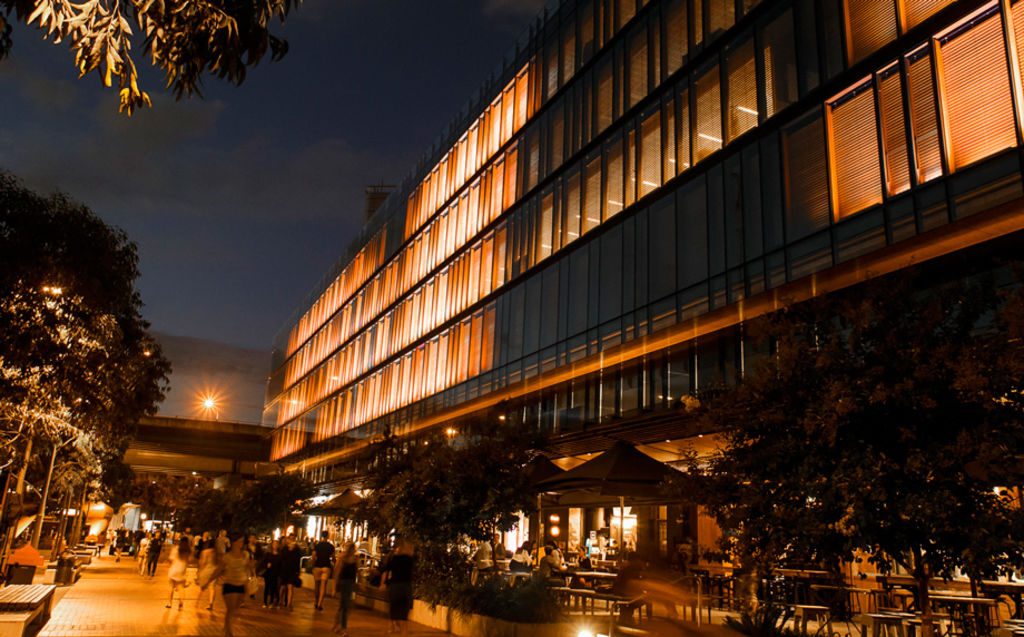
GST and commercial property: Guide for commercial investors
The way you manage GST when investing in commercial property can potentially cost or save you hundreds of thousands of dollars.
Did you know that you need to register for GST when investing in commercial property? It is an important step in your investment journey – but sometimes investors forget to factor GST into their budget at all.
This is a big mistake as the figures involved can be significant. The ins and outs of GST regulation can be complex but by doing your research and getting the right help, you won’t miss out on valuable GST credit opportunities, or neglect to pay GST when you are liable.
A number of circumstances determine whether you are liable to pay GST when selling a property, and how the tax will be calculated if you are. If you are buying a property, there are also a number of specific conditions to adhere to if you want to be eligible to claim back GST.
We outline these and other important GST considerations below. It is also a good idea to take a look at the Australian Taxation Office (ATO)’s GST property tool when getting started.
What’s at stake?
Whether or not you pay GST on the sale of your property makes a big difference to your bottom line. For instance, if you sell an office suite for $1.1 million (GST inclusive) and are liable to pay GST, $100,000 will go to the ATO. If you don’t need to pay GST and you manage to sell for $1.1 million (excluding GST), that $100,000 stays in your pocket.
The amount of GST a vendor pays is also important. If you are eligible to use the margin scheme (refer below) to work out the GST on your sale, your GST could be reduced dramatically.
Common GST mistakes commercial business owners make
One common mistake investors make is not registering for GST when they are required to do so. If this happens, you are likely to have to pay GST on any sale you have made since the time you were required to register, even if you didn’t include GST in the sale price.
For example, if you sold a property for $1 million with no GST, but should have been registered, you’ll still have to pay the GST and it’ll come straight out of your pocket. So your $1 million sale will only net you $909,091. However, had you registered for GST prior to the sale, you would have sold the property for a GST-inclusive price of $1.1 million (buyers pay the GST up front but can claim it back). You then pay your GST liability of $100,000, and take home your $1 million net.
If you’re buying, you can typically claim back the GST you paid on your purchase, but you’ll need to pay the money up front to the seller. According to Rodger Muir, Indirect Tax Partner at Deloitte, this means buyers must ensure they will be able to fund the gap between purchasing the property and receiving their GST refund. On a $1.1 million purchase, it can take weeks and occasionally months before the $100,000 GST refund is forthcoming from the government.
Muir says buying a property that is a “supply of a going concern” (a business that will operate into the foreseeable future and is appropriately resourced) is an excellent way to deal with this potential cash-flow problem as you won’t need to pay GST in the first place. Such a purchase also reduces the stamp duty applicable since this is normally based on the GST-free price rather than GST-inclusive price. On a $1 million property, this will be a difference of around $6000.

Is GST payable by the seller on the sale of a business?
Whether buying, selling or leasing property, you are generally considered to be “carrying on an enterprise” for GST purposes. If your gross turnover excluding GST is more than the GST registration threshold of $75,000, you may be required to register for GST.
If you are registered for GST (or required to be) and you plan to sell your property, you will usually be liable to charge 10 per cent GST on the sale and pay this amount to the ATO. You should, therefore, allow for GST on the price of your property since this amount will not be part of the money you keep.
“[A seller] usually funds the GST liability by either determining a price on a GST-inclusive basis [with the expectation that on receipt of payment, they would be able to cover their GST liability], or by quoting the price on a GST-exclusive basis, but with a contractual right to be paid an additional amount by the purchaser to cover the GST,” Muir says.
However, there are some circumstances where the sale does not attract GST.
GST-free supply
The vendor does not need to pay GST if the property is part of a GST-free “supply of a going concern“. This may apply if the property is one of the following:
- Business premises (assets and the operating structure of the business must be sold together with the property)
- A fully tenanted building (all leases, agreements and covenants must be included in the sale)
- A partially tenanted building (the vacant part of the building must either be actively marketed for lease or undergoing repairs or refurbishment, and all leases, agreements and covenants must be included in the sale).
Both vendor and buyer should agree in writing that the sale is of a going concern. However, Muir says, “… the vendor needs to be comfortable that the GST-free ‘going concern’ rules would be satisfied since it is the vendor who would normally have the liability to pay GST if any of these requirements were not met, and as such bears the risk of being required to pay the tax shortfall to the ATO, as well as any interest and penalties applicable.”
Input-taxed supply
An input-taxed sale does not attract GST. While the sale of commercial real estate is generally not classified as input-taxed (rather, it is taxable or GST-free), Muir says there are limited circumstances where this classification may apply. Examples include the second and subsequent sales of independent living units in a retirement village or strata-titled hotel rooms.
Do you have to pay GST if you are not registered?
According to Samuel Hadgelias, managing director at Ray White Commercial, GST on the sale of commercial property generally applies if the seller is registered or required to be registered for GST.
“Entities must register if their total taxable turnover — typically including commercial rent and business income — exceeds $75,000 per year,” Hadgelias says.
“However, if the sale is an isolated transaction (such as an owner selling a single property they have held long-term), GST may not be required. Exemptions, such as the ‘going concern’ exemption or the application of the margin scheme, may also affect the GST treatment, so sellers should seek professional tax advice before proceeding.”
How the GST margin scheme works
If you are eligible, you may be able to use the margin scheme to work out the GST on your sale. According to Muir, the margin scheme is most often used for land that will ultimately be used for residential purposes. Under the scheme, the 10 per cent of GST payable is typically only calculated on the sales margin – that is, the sale price less the amount the property was bought for (or, sometimes, the sale price less the valuation price or a prior owner’s purchase price).
This makes a significant difference. For example, if you buy a warehouse for $5 million (GST exclusive) and sell it for $5.5 million (GST exclusive), a GST of 10 per cent on the sale price is $550,000. Under the margin scheme, your GST is only $50,000 (that is, 10 per cent of the $500,000 sales margin).
Determining whether or not you can use the margin scheme can be complex, but some general rules apply:
- You can only apply the margin scheme if the sale of the property is taxable.
- Whether you are eligible or not depends on the circumstances of your purchase as well as earlier transactions in the property.
- You cannot use the margin scheme on your sale if, when you purchased the property, it was fully taxable and the margin scheme was not used.
Consult the ATO or your GST specialist for more details.
At all times, Hadgelias says, sellers should clearly state whether the sale price includes or excludes GST when marketing commercial property.
“If GST is applicable, the seller must collect and remit it to the ATO through their Business Activity Statement,” he says. “In some cases, the margin scheme may be applied, which can reduce the GST payable on the sale, but this must be agreed upon by both parties.”
When can a buyer claim GST?
The good news for buyers of commercial real estate is you are generally able to claim any GST included in the purchase price.
As always, there are a few caveats to claiming GST credits:
- You must be registered for GST
- You generally need to hold a tax invoice for the purchase
- The property must be used in carrying on an enterprise
- You cannot claim the GST if the seller used the margin scheme to work out the GST or you bought the property GST-free supply
According to Muir, other conditions can reduce or limit your entitlement to GST credits, such as renting out the property as independent living units in a retirement village, or for private or domestic purposes.
Buyers should ensure they are registered for GST and have received a tax invoice for their purchase. They can then claim GST credit entitlements in their BAS.
“Often, large GST credit claims will attract the attention of the ATO, who may wish to undertake some verification activities,” Muir warns. “Buyers should be prepared for the delays associated with the verification activities by having documentation [such as the tax invoice, purchase contract, evidence of payment and any GST advice sought] at the ready, and ensuring they are able to adequately fund the delay in receiving any GST refund.”

Paying GST when there are commercial tenants
If the property is subject to a lease or licence at the time you buy, the sale may be classified as a GST-free “supply of a going concern”. As the buyer in this instance, you will not need to pay GST at all. In fact, even if the premises are unoccupied, they may still qualify if the property is actively being marketed or undergoing major refurbishments.
However, Muir explains, “There are particular instances where it is disadvantageous to treat the purchase of property as a supply of a ‘going concern’. These are usually most significant where the purchaser would have been prevented from claiming a full GST credit on the purchase, had GST been applied.” This is a particular issue in the retirement living sector.
When should an owner pay GST?
According to Hadgelias, if you lease out your commercial property and your total taxable turnover (including rent and other business activities) is below $75,000 per year, GST registration is generally not required.
“However, if the turnover exceeds this threshold, GST registration is mandatory, and 10 per cent GST must be charged on rent payments,” he says. “Tenants who are registered for GST may be able to claim input tax credits for the GST paid on rent.”
Muir says there are a few exceptions to the rule. A lease of long-term accommodation in commercial residential premises (such as hotels), may attract GST of 5.5 per cent or may even be input-taxed, thereby not attracting any GST.
Leasing commercial residential premises
According to the ATO, If you’re registered (or required to be registered) for GST, whether you’re up for paying GST depends on what you provide:
- Short-term accommodation – if a guest stays for less than 28 consecutive days, you’re liable for GST
- Long-term accommodation – if a guest stays for 28 or more consecutive days, concessionary GST treatment applies
- Primarily long-term accommodation – if at least 70 per cent of your guests stay for 28 or more continuous days, concessionary GST treatment applies
Holiday apartments and GST
Commercial residential premises are typically subject to GST. However, a single holiday apartment doesn’t share the traits of commercial residential premises. If you sell or rent your holiday abode, you may not have to pay GST, according to the ATO.
While there have been no major changes to GST laws affecting commercial property, it is important to note tax is an evolving landscape, as is the ATO’s advice on holiday apartments.
There have been tax changes to short-stay accommodation taxation in Victoria, which took effect on January 1, 2025.
A 7.5 per cent short-stay accommodation tax is now payable by owners (who plan to pass on the tax to consumers) to target short-term rentals like Airbnb.
Although this tax primarily affects residential properties used for short-term accommodation, it’s a reminder to keep on top of developments.
Other GST concerns you should consider
When buying, selling and leasing commercial property, there are a number of circumstances in which you will be able to claim GST credits on related expenses such as solicitor’s fees or real estate agent fees. These include when:
- You buy or sell a property as a taxable sale or as a “sale of a going concern”
- You buy or sell a property where the margin scheme was used
- You lease out a property.
You cannot claim GST credits on related expenses if:
- You sell a property that is classified as an input-taxed supply
- You buy a property that is not being used to carry on an enterprise.
Sometimes, an investor may accrue a GST credit on a property purchase that exceeds the total GST payments made as part of business trading in that period. In most cases, a refund from the ATO is possible; otherwise, the refund can be applied against outstanding tax debts such as income tax or fringe benefits tax.
Seek GST advice
Muir recommends vigilance when it comes to GST in commercial property transactions.
“GST issues in the commercial property sector are many and varied,” he says.
“There are also particular issues around joint ventures, co-ownership and similar arrangements, which can result in adverse GST outcomes.
“The application of the margin scheme is an ongoing source of complexity, and the retirement living and tourist accommodation sectors continue to be problematic areas.
“Given the sums usually involved in property purchases and the risk that things can go wrong, we generally recommend to clients that they seek GST advice on all property transactions – even the seemingly ‘plain vanilla’ variety.”










